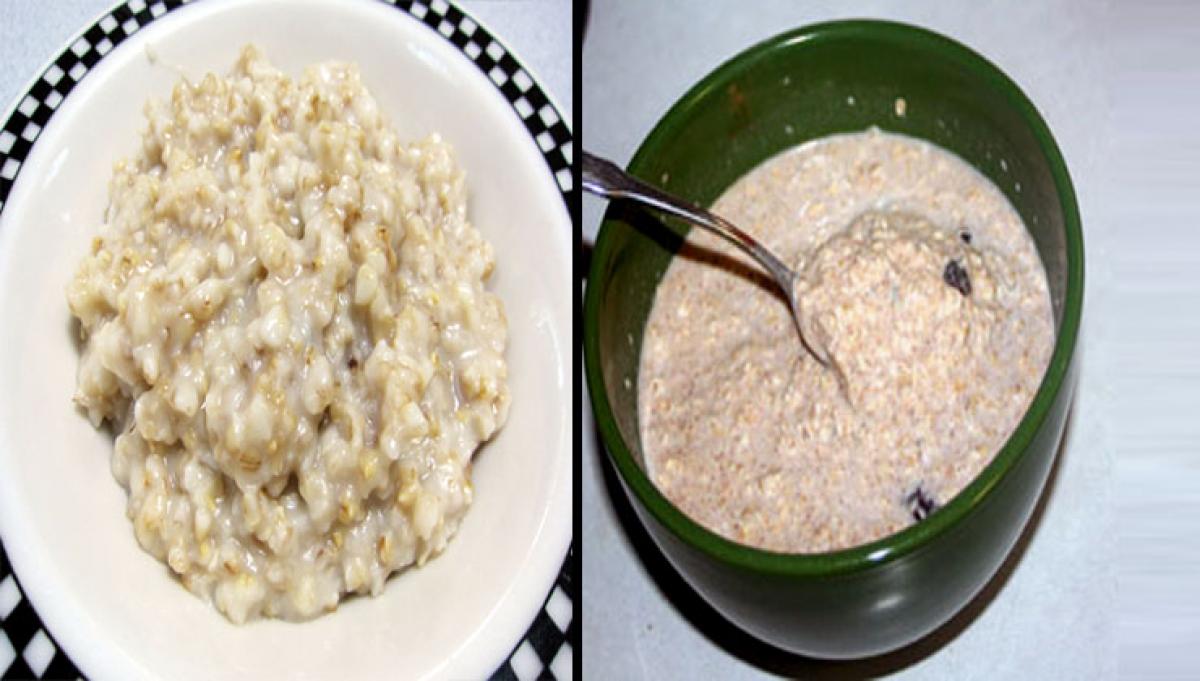How to curb your appetite at lunch?

How to Curb Your Appetite At Lunch?. Washington D.C: Hogging at lunchtime? Here\'s a way to control your hunger as a new study reports that having instant oatmeal for breakfast might help curb your appetite at lunch.
Washington D.C: Hogging at lunchtime? Here's a way to control your hunger as a new study reports that having instant oatmeal for breakfast might help curb your appetite at lunch.
.jpg)
A new study revealed that a hearty bowl of instant oatmeal helped curb food intake at lunch better than a leading oat-based and cold cereal.
In the study, lead author Candida Rebello of the Louisiana State University found that after consuming instant oatmeal, the participants chose to eat significantly less at lunch compared to those who ate the oat-based, cold cereal.
After an analysis of the types of fiber in each cereal, the researchers suspected that the higher molecular viscosity of the beta-glucan in the instant oatmeal contributed to its satiating effect over the oat-based, cold cereal.
Authors stated that the processing of the cold cereal might lead to changes in the oat fiber that reduced its ability to enhance satiety.
In the study, the researchers presented the participants with a lunch meal of their choice such as turkey, ham, roast beef or vegetable patty sandwiches and a calorie-free or calorie-containing beverage, alongside potato crisps and cookies.
The lunches offered ranged from 2,600 to 2,800 calories and participants were told to 'eat to satisfaction.' Total calorie intake was significantly lower following consumption of instant oatmeal compared to the cold cereal, as were fat and protein intake.
Marianne O' Shea of the Quaker Oats Center of Excellence said that the recent 2015 Dietary Guidelines for Americans Committee Report emphasised the importance of eating breakfast for all Americans, adding that the fact that choosing instant oatmeal over a cold cereal may also help Americans curb their intake at lunch was especially encouraging.
The study is published in the journal of the American College of Nutrition.
















